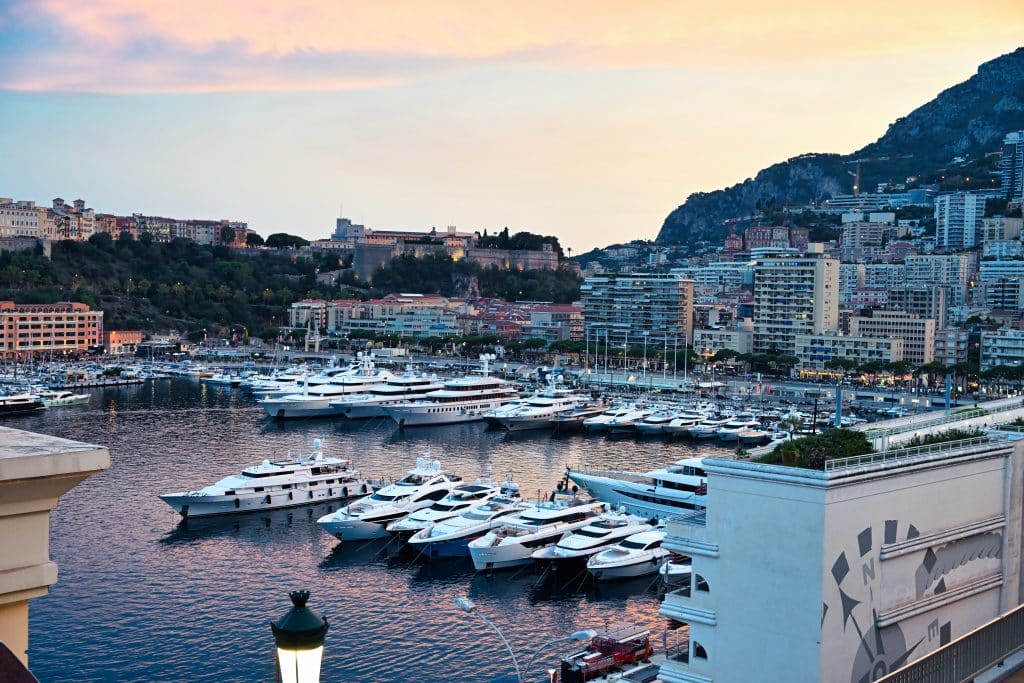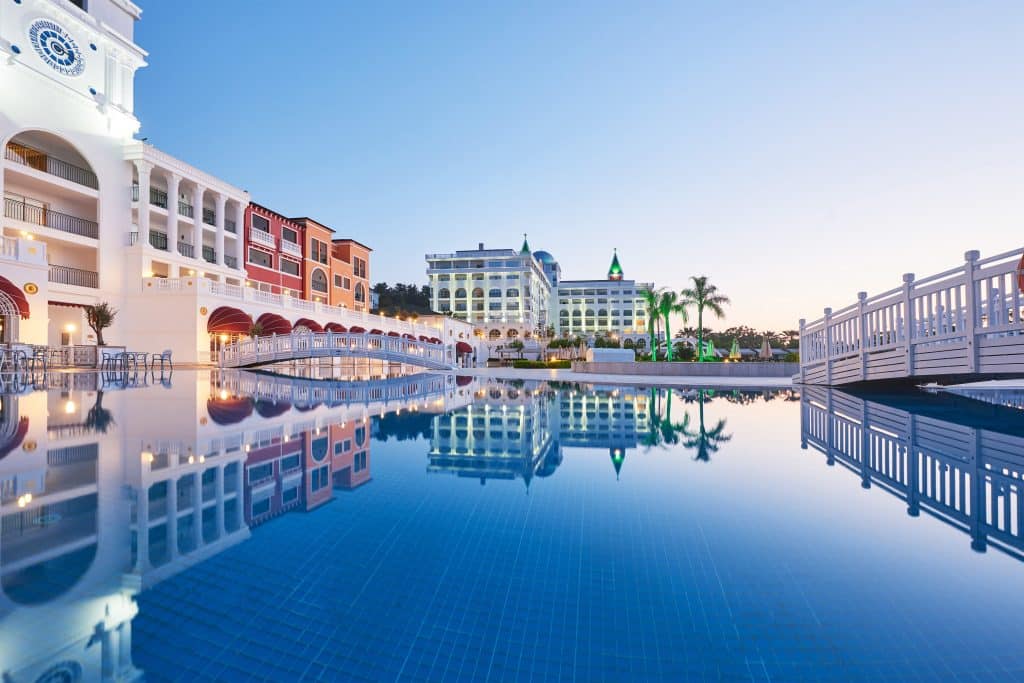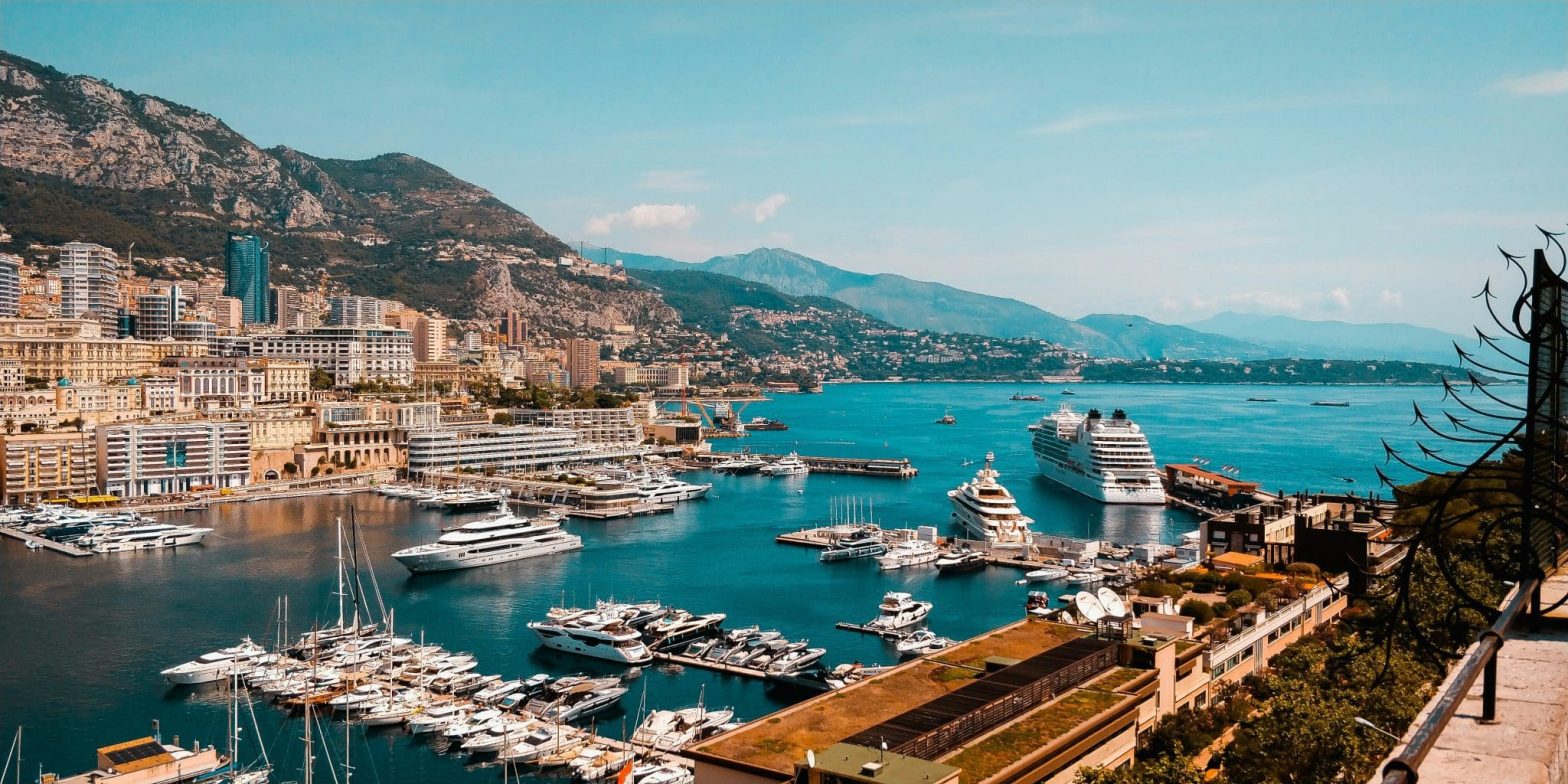Are you thinking of moving to Monaco after a trip that left a lasting impression on you, or for professional opportunities? Thousands of expats have made the same choice, attracted by the Monegasque lifestyle.
It’s normal to wonder how much you should budget, given that the Principality is known for its luxurious lifestyle. To help you with your expatriation project, here is a comprehensive guide to the cost of living in Monaco!
Overview of the average cost of living in Monaco
As a reminder, the Principality of Monaco is part of the eurozone and, as such, its official currency is the euro, abbreviated to EUR (€).
According to Numbeo, a single person living in Monaco needs a monthly budget of around €7,800, while a family of four should expect to spend more than €23,000. These averages include rent and the main expenses (groceries, healthcare, transport, education, leisure, etc.).
| Service | Price |
| National gross salary | €4,900/month |
| Rent for a one-bedroom apartment in the city centre | €6,100 |
| Purchase price of an apartment per square metre | €54,000 |
| Petrol (1 litre) | €1.70 |
| Mobile phone plan (calls + 10 GB of data) | €52 |
| Meal for two in a mid-range restaurant | €140 |
| Cinema ticket | €12 |
Accommodation in Monaco
Everything that is rare is precious … and this saying has never been truer than when it comes to accommodation in Monaco. Monaco covers a total area of just 2 km², which means that land is very limited. This pushes up rental and purchase prices, which are among the highest in the world.
Unsurprisingly, housing is therefore the biggest expense in Monaco, accounting for over 60% of the monthly budget.
Renting property in Monaco
Housing is the biggest expense in Monaco. And with good reason: renting a one-bedroom apartment in the city centre costs around €6,200 per month.
The most luxurious neighbourhoods are obviously the most expensive, including Monte Carlo and its famous Carré d’Or, but also Larvotto, Fontvieille and, more recently, the new Mareterra district.
It is possible to find a studio apartment of around 40 m² for around €3,000 in certain areas.
However, for larger properties, such as a three-bedroom apartment, you should expect to pay an average of €17,000 per month.
For a large house or luxury villa, the budget can quickly exceed €100,000 per month.

What about the price per square metre?
The average price per square metre in Monaco is €54,000. This has made Monaco the place with the highest average price per square metre in the world for several years now.
According to the latest figures from Statista, with €1 million, you can buy 17 square metres in Monaco. By way of comparison, with the same budget, you can get around 37 square metres in Switzerland, 70 square metres in Berlin or 100 square metres in Madrid.
Food prices in Monaco
Here are the prices of some basic food items in Monaco:
| Food | Average price in Monaco |
| Milk (1 litre) | €1.80 |
| Water (1.5 litres) | €6 |
| Bread (500 g) | €4.65 |
| Dozen eggs | €4.80 |
| Local cheese (1 kg) | €15 |
| Chicken fillets (1 kg) | €16.60 |
| Meat (1 kg | €16.30 |
| Potatoes (1 kg) | €4.10 |
| Onions (1 kg) | €4.30 |
| Tomatoes (1 kg) | €4.60 |
| Apples (1 kg) | €4 |
| Bananas (1 kg) | €5.30 |
| Local beer (500 ml bottle) | €1.70 |
| Imported beer (330 ml bottle) | €4 |
Transport in Monaco
Bus
To take the bus in Monaco, expect to pay €2 for a single ticket and €20 for a 15-trip pass.
Buses are operated by the Compagnie Autobus de Monaco (CAM) and offer several different passes. Feel free to check them out on the dedicated section of their official website: https://www.cam.mc/tarifs
Taxi
Taxi fares in Monaco are governed by a single price list. This sets the price at €18 for a journey within the Principality and €28 if you wish to book a taxi in advance.
Car
Drivers can of course travel by car, with petrol costing €1.70 per litre.
The Principality also promotes green mobility with Mobee, electric vehicles available through a smart car-sharing scheme. You can subscribe to the service for €15/month with the following rates:
| Vehicle | Price for subscribers | Price for non-subscribers |
| Renault Twizy | €8.5 | €17 |
| Smart #1 | €14 | €28 |
| Tesla Model 3 | €23 | €46 |
Bicycle
If you have your own bike, it’s obviously 100% free. You can also opt for the MonaBike service, Mobee’s cycling alternative. You can rent an electric bike from one station to another at different rates:
- €1 for a single trip of less than 30 minutes;
- €3 for a 24-hour rental;
- €8 for a 7-day pass;
- €18 for a monthly pass;
- €72 for an annual pass.
Water bus
Finally, you can also take the ‘Camille’ water bus, which connects the Quai des États-Unis to the Cruise Terminal, and more specifically Monte-Carlo to Monaco Ville. The fare is €2 per trip.
Healthcare in Monaco
The Monegasque healthcare system is one of the best in Europe and, more broadly, in the world.
All residents benefit from public health coverage that covers up to 80% of the usual cost of various medical services.
| Medical services | Prices |
| Consultation with a general practitioner | €34.10 to €40.90 |
| Consultation with a specialist | €45.60 to €54.70 |
| Consultation with a cardiologist | €111.70 to €134 |
| Teleconsultation | €45.60 to €54.70 |
The cost of non-contracted services can reach up to €200 for a consultation with a specialist.
According to WHO data, hospitalisation costs in Monaco are among the highest in the world, with an average price of €3,065 per day.
For comprehensive health coverage, most residents take out private health insurance. This supplements the coverage by covering dental and optical expenses, etc.
For expatriates, Foyer Global Health offers international private health insurance. This is valid worldwide and provides access to:
- High-quality care at the healthcare facility of their choice;
- Free access to a second medical opinion via teleconsultation on Teladoc Health®
- A mental health coach (expatriation comes with its own set of personal challenges!)
- The ‘Get Fit’ fitness programme
- 24/7 assistance
Education
Monaco is home to several public and private schools.
For example, you can enrol your children in the Albert 1er public secondary school in Monaco, with no tuition fees.
In the private sector, you can expect to pay between €700 and €3,000 per month on average for a nursery school.
For secondary education, several establishments offer high-quality teaching, such as the International School of Monaco. Here are the school fees for 2025-2026:
- Primary school: from €9,300 to €29,000;
- Secondary school: from €31,100 to €34,400.
Leisure and activities
- Visit the Oceanographic Museum: €25 per adult and €14 per child.
- Attend the Monaco Grand Prix at least once: from €45 per ticket in the grandstand.
- Go scuba diving on the French Riviera: €150 on average.
- Take a private cruise with a skipper: from €175 to over €1,300, depending on the type of boat (skipper, yacht, etc.), the duration and the excursion.
- Take out a gym membership: €300 per month on average.
- Dinner at a mid-range restaurant: €70 per person (starter, main course and dessert).
- Cappuccino on a terrace: around €4.

What is the average salary in Monaco?
In Monaco, the average salary for residents working in the private sector is €4,900 gross per month.
However, this salary varies greatly depending on the sector of activity.
For example, the average salary for a professional in finance or insurance is €6,600 gross, compared to €3,000 for jobs in the scientific sector.
Cost of living in Monaco compared to other European countries
Compared to France
The cost of living in Monaco is 78% higher than in France. Unsurprisingly, this difference is mainly due to rent.
This is obvious when you compare the price of accommodation in Paris and Monte Carlo. A one-bedroom studio in the city centre costs €1,500 in Paris, compared to €7,300 in Monte Carlo.
On the other hand, the average salary in Monaco is obviously higher than in France, at €4,900 compared to €2,500.
The minimum wage is also higher, although there is a slight difference. The basic hourly wage is the same, at €11.88, but the working week is 39 hours in Monaco compared to 35 hours in France, which means that the minimum wage in Monaco is slightly higher.
It should be noted, however, that purchasing power in France is 40% higher.
Compared to Switzerland
The cost of living in Switzerland is up to 58% cheaper than in Monaco. This difference may come as a surprise, given that Switzerland is considered one of the most expensive countries in the world. But, once again, the price of housing is the main factor driving the gap.
When comparing other items of expenditure, the picture changes. For example, the grocery budget is generally higher in Switzerland:
- A dozen eggs: €5.50 in Switzerland compared to €4.80 in Monaco
- Chicken fillets (1 kg): €29 in Switzerland compared to €16.60 in Monaco
- Tomatoes (1 kg): €5.38 in Switzerland compared to €4.60 in Monaco
In terms of salaries, those offered in Monaco are generally higher, although Switzerland offers greater purchasing power.
Compared to Italy
Life in Italy is up to four times cheaper than in Monaco. While a person needs an average of €7,800 per month to live in Monaco, this budget drops to €1,450 in Italy.
But of course, the average salary in Monaco is higher, even though Italy offers slightly higher purchasing power (+7%) than Monaco.
If you are interested in this topic, please also consult our guide on the cost of living in Italy.
